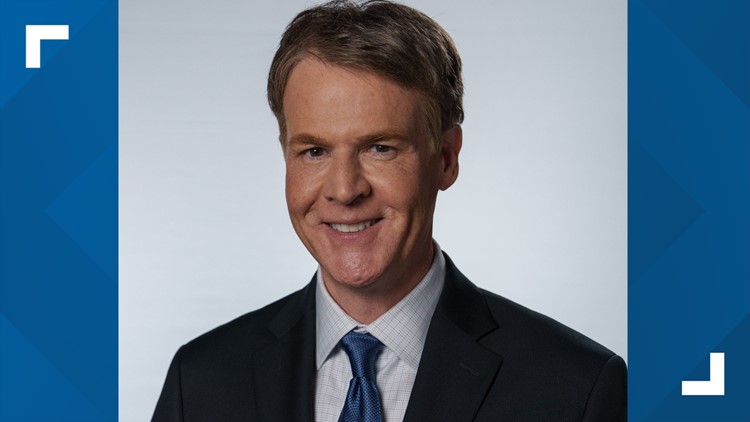INDIANAPOLIS — It used to be that any middle class Hoosier schmoe could run for Congress ... and actually win. Republican Mike Pence and Democrat Jim Jontz won races in bygone decades by pedaling bicycles to campaign events across their sprawling congressional districts.
But these days Indiana congressional seats are being staked out and won by the rich. A self-funding spending spree is happening in four Indiana congressional districts, with Republican candidates loaning their campaigns an unprecedented $13.88 million, according to Federal Election Commission filings on campaign activity through March 31.
Former Indianapolis mayoral candidate Jefferson Shreve’s two-year political wallet blitz continues after he reported $4.5 million in loans to his 6th Congressional District campaign, an open seat being vacated by U.S. Rep. Greg Pence. Rival candidates include Siddharth Mahant (who has spent $2 million of his own money); State Rep. Mike Speedy, who has loaned his campaign $1.3 million; and Greenwood businessman Jamison Carrier, who is in for $750,000. State Sen. Jeff Raatz is a relative piker, committing a mere $5,000.
Shreve spent more than $13 million on his unsuccessful Indianapolis mayoral bid in 2023.
In the 5th CD, State Rep. Chuck Goodrich has loaned his campaign $2.6 million in his race against U.S. Rep. Victoria Spartz, who won a 15-candidate primary in 2020 by spending $1.1 million of her own money.
In the open 3rd CD being vacated by U.S. Rep. Jim Banks (who is running for the U.S. Senate), former Fort Wayne mayoral nominee Tim Smith has anted up $1.1 million, Marlin Stutzman has $500,000 (already paying back $100,00) and Wendy Davis has spent a relatively meager $83,200 of her own money.
In what was once known as the "Bloody 8th" (it used to be competitive, but the maps of 2011 and 2021 have rendered it and GOP landslide haven) being vacated by U.S. Rep. Larry Bucshon, Dr. Richard Moss is spending $545,000, and Dominick Kavanaugh $500,000, while State Sen. Mark Messmer is doing it the old-fashioned way, by raising money from individual donors and political action committees.
In 2016, Tennessee Republican Trey Hollingsworth spent more than $3 million of his own money, and his father added $1.5 million through a super PAC to win Indiana's 9th CD. Hollingsworth defeated Attorney General Greg Zoeller, State Sen. Brent Waltz and current U.S. Rep. Erin Houchin in that race.
Two years later, Mike Braun wrote more than $10 million in checks to fund a campaign that defeated two sitting congressmen in the primary (Luke Messer and Todd Rokita), and then U.S. Sen. Joe Donnelly that November. Donnelly would tell me the following winter that an anonymous "dark money" donor had pumped in $20 million against him.
Sen. Braun is funding his gubernatorial campaign this year in a more traditional way, instead of writing personal or business checks. But he did receive a $1 million donation from Richard Uihlein, an Illinois businessman. Brad Chambers has spent $9 million of his own funds in that race, and Eric Doden received $1 million from his parents on April 1.
This unprecedented amount of personal funds flowing comes during an exodus of powerful Republicans from the U.S. House, where close to 30 members, including five committee chairs, aren’t seeking reelection or are abruptly heading for the exits.
So, Indiana is tending to elect self-funders to open congressional seats.
And now a new trend line is emerging: The self-funders don’t stay long. Hollingsworth left the House after four terms, Pence after three, Spartz after two (until she changed her mind and filed just before the February filing deadline), and Braun after one six-year term. Reps. Pence and Hollingsworth didn’t have congressional level communications operations.
They don’t communicate. They maintain “zombie” offices that have high staff turnover. They don’t do town halls.
With little tenure, Indiana’s Capitol Hill clout erodes. For example, the Indiana delegation doesn’t have a committee chair. Rep. Houchin is the 2022 Republican class president and is in leadership, but that’s it.
Indiana’s delegation is lacking in clout, particularly in its House delegation. According to the Center for Effective Lawmaking, a joint project by the University of Virginia and Vanderbilt University, Legislative Effectiveness Scores, Rep. Bucshon was the most effective at 32 out of 222 GOP members gauged (and he's retiring); Banks was ranked 63, Spartz 148, Hollingsworth at 154, the late Jackie Walorski at 165, Pence at 193 and Jim Baird at 199. For Democrats, Rep. Frank Mrvan was 54th out of 232 caucus Democrats, while Rep. Andre Carson ranked 167th.
While the Indiana House delegation wasn’t productive on the legislation front, Axios reported the 118th Congress is on track to be one of the most unproductive in modern history. Less than 25 bills have passed and been signed into law. The year 2023 also marks the low point in a years-long trend toward gridlock: Five of the six most unproductive first years have been since 2011.
So it's amusing, in a disturbing kind of way, that these rich candidates aspire to seek jobs in such a dysfunctional body. In February, Gallup measured the favorability of Congress at an embarrassing 12%.
Perhaps they dream of being a rich politician, elevating to that of a statesman, if they decide to stay long enough.
Brian Howey is senior writer and columnist for Howey Politics Indiana/State Affairs. Find Howey on Facebook and X @hwypol. State Affairs reporter Jarred Meeks contributed to this column.



